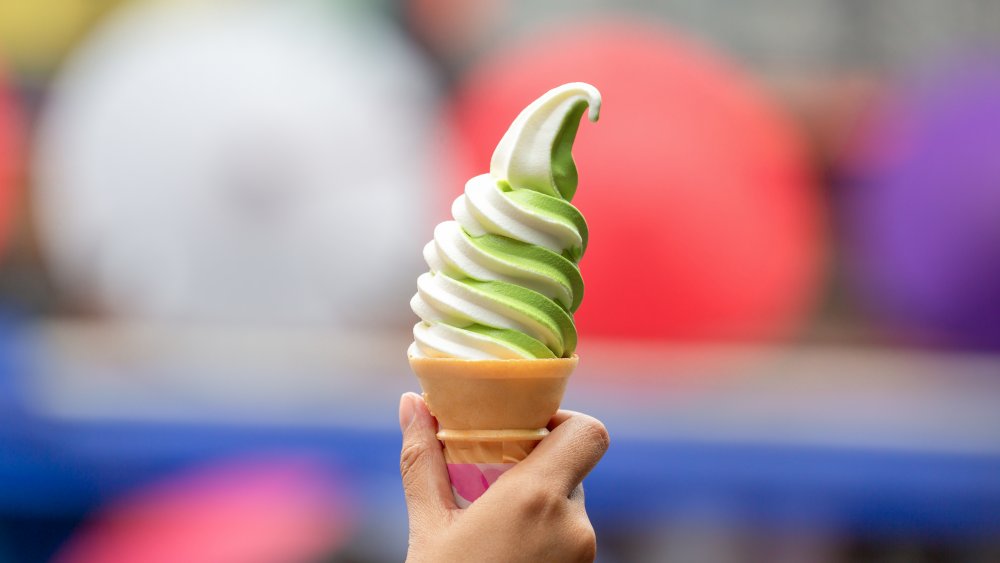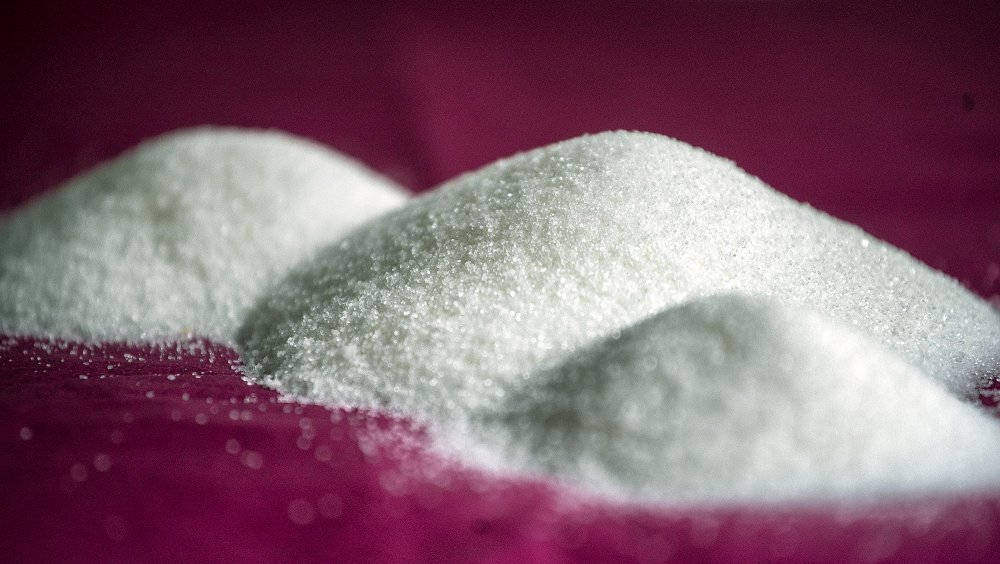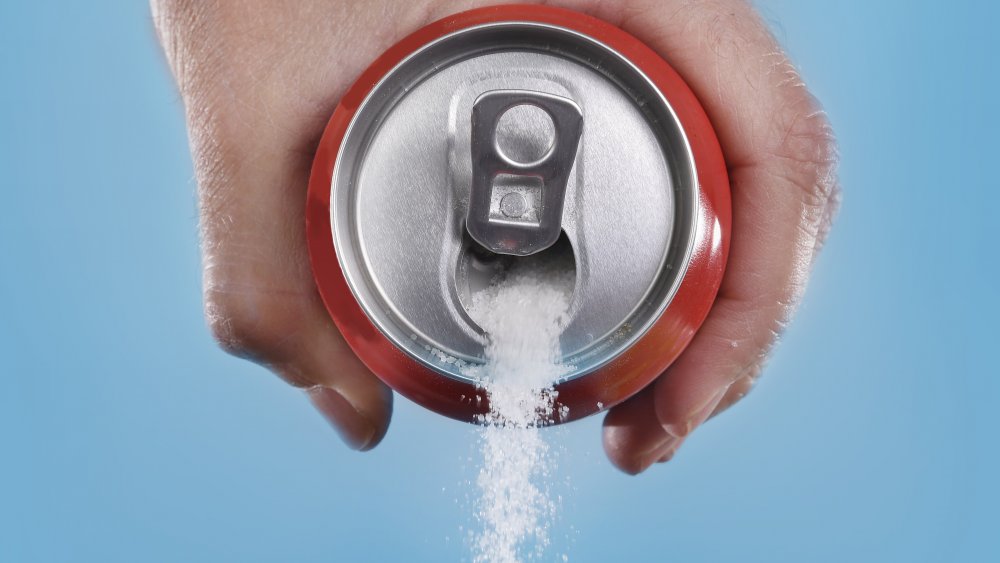This Is What Happens When You Eat Too Much Sugar
Sugar is everywhere — even in places you might not expect. A can of baked beans, a jar of red pasta sauce, and a protein bar can be packed with added, over-processed sugar (via Insider). Consuming sugar in moderation isn't horrible — especially if you're eating whole fruit, which contains fiber and antioxidants along with a dose of fructose. But things can get out of hand if you turn to processed fruit juices, according to Healthline.
According to the American Heart Association, your daily sugar intake should be somewhere between 6 and 9 teaspoons a day — 6 for women and 9 for men. But studies have shown that Americans, on average, consume far more than what they're supposed to. And unsurprisingly, one of the culprits of added sugar in people's diets? Soft drinks. To put things in perspective, there are more than 9 teaspoons in a can of Coke (via Livestrong).
It's not just about weight gain when we say excess sugar is bad for your body. Consuming too much sugar can alter your dietary habits, jeopardize your heart, and even alter your mental health.
Your body consumes empty calories
Before we jump into the scary nutritional facts, let's clear up one big misconception: Calories are not bad for you. In fact, your body needs calories to keep going. What truly matters is the type of calories you're consuming (via SF Gate). Eating a bowl of steel-cut oats may have the same caloric value as a chocolate bar, but it doesn't take a dietitian to figure out which is healthier. Now that we've gotten that out of the way, let's talk about empty calories.
Empty calories are often tasty, but like the sugary chocolate bar mentioned above, they don't add any nutrients to your body. Empty calories won't provide vitamins or minerals — they won't give you long-lasting energy (via Healthline). Sugary foods are filled with empty calories. The easiest example? Soda. Its calories come from high levels of processed sugar, so while you don't necessarily feel full or energized after drinking it, your body has absorbed a couple of hundred empty calories. The same goes for pastries and candy, according to WebMD.
While these foods are OK in moderation (we're not about to deny ourselves a donut every now and then), eating too much of them will actually confuse your brain. According to Insider, all those sugars, syrups, and empty calories will make it more difficult to tell if you're actually full or not. That leads to overeating.
It compromises a healthy heart
This one shouldn't be surprising — although it is serious. Researchers at Harvard University have found strong correlations between high sugar consumption and heart disease. Even if you don't gain weight, your heart still takes a beating when you consistently eat too much sugar. While it's a solid consensus that sugar affects your heart health, researchers still aren't sure how. Some studies have revealed that high sugar consumption raises your blood pressure. Other research suggests that sugar causes your liver to function differently, which can, in turn, put you at risk for heart disease, according to Harvard.
Plus, excessive sugar can prompt inflammation in the arteries, piling physical pressure on the heart as it pumps blood throughout the body. High blood pressure and an unhealthy heart can cause a variety of things you don't want — like heart attacks and strokes, according to WebMD. And it's not just your heart that faces impairment: too much sugar can compromise your kidneys, pancreas, and brain.
It can mess with your mental health
Even if you don't exhibit the physical symptoms of too much sugar — like unhealthy skin or weight gain — your mental health could be at risk. Too much sugar can increase your risk for anxiety and depression, according to Healthline. If you eat sugary snacks to relieve yourself from a stressful situation, and it becomes a habit, then your body may start to feel more dependent on sugar whenever a stressful situation arises. You can actually crave a dopamine rush from sugary food, but that seemingly addictive pattern isn't good for you in the long run (via NPR)
While it can be difficult, try taking a different approach to stress. Listen to music, take a walk, or drink hot tea — those outlets can serve as sustainable coping mechanisms for anxiety. If you are truly hungry, try cooking. Even cooking a healthy meal can have therapeutic effects on your mental health, according to Huffington Post. There are countless options that don't involve empty calories or high-fructose corn syrup. And your body will thank you.



